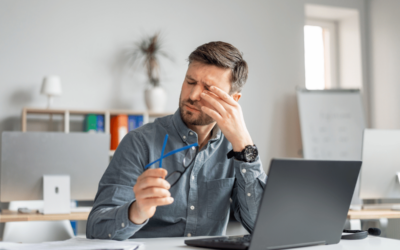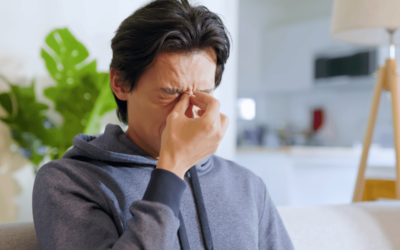Have you ever struggled to read small print, even with your glasses on, or found it hard to recognize faces from across the room? For many people, vision issues can be corrected with glasses, contact lenses, or surgery. But for those with low vision, it’s more complicated. Low vision refers to vision loss that can’t be fully corrected, making everyday tasks like reading, cooking, or even walking around the neighborhood more difficult.
Fortunately, with the right care, tools, and strategies, people with low vision can still maintain their independence and enjoy life to the fullest. At Complete Low Vision Care, we help individuals with low vision, as well as those with additional disabilities, adapt to their unique vision needs. In this blog, we’ll look at what low vision is, the common causes and symptoms, and how it can be managed.
What is low vision?
Low vision is a visual impairment that can’t be fixed with glasses, contact lenses, medications, or surgery. It affects people’s ability to do everyday tasks, but it’s not the same as blindness—most individuals with low vision still have some usable vision. The degree of vision loss varies from person to person, and it may affect your central vision, peripheral vision, or ability to see in low light. The letters in a book might be blurry, or you might have trouble recognizing your friend’s face in a crowded room. These types of challenges can be a daily occurrence for people with low vision.
What causes low vision?
Low vision can be caused by a variety of eye conditions, most of which develop over time. Here are some of the most common culprits:
- Macular degeneration: A leading cause of low vision in older adults, this condition affects the macula. The macula is the part of the retina that lets you see objects directly in front of you.
- Glaucoma: Often called “the silent thief of sight,” glaucoma can damage the optic nerve and cause gradual vision loss, typically starting with peripheral vision.
- Diabetic retinopathy: When diabetes isn’t properly managed, high blood sugar can damage the blood vessels in the retina, leading to vision problems over time.
- Cataracts: While cataracts can be treated with surgery, advanced cataracts can cloud the lens of the eye, leading to vision loss if left untreated.
- Retinitis pigmentosa: A genetic condition that gradually damages the retina, leading to night blindness and loss of peripheral vision.
What are the symptoms of low vision?
Not everyone with low vision has the same symptoms. Some people might have trouble seeing objects straight ahead (central vision), while others may lose their peripheral vision (side vision). Common symptoms include:
- Blurred or hazy vision
- Trouble reading, even with an up-to-date vision prescription
- Trouble recognizing faces or seeing details from a distance
- Poor vision at night or in low light
- Sensitivity to glare
- Difficulty with tasks that require seeing fine detail, like threading a needle
How can low vision be treated?
While low vision can’t be fully corrected, Complete Low Vision Care offers tools and rehabilitation services to help individuals make the most of their remaining vision. Our approach focuses on two key areas: low vision devices and low vision rehabilitation.
Low vision devices
These tools include magnifiers (e.g., handheld, stand, pocket, and video), telescopes, special glasses, and OrCam MyEye (a lightweight wearable camera that attaches to any pair of glasses) to enhance your vision for everyday tasks. These visual aids can make a significant difference in your ability to see clearly when reading, watching TV, or recognizing faces. Our team will work closely with you to find the right solutions based on your specific needs.
Low vision rehabilitation services:
We offer low vision rehabilitation services in Round Rock and Austin to help you manage daily activities with greater ease. We teach practical strategies for tasks like writing, personal grooming, and using magnifiers for reading. Beyond that, we can help you adapt your home for easy navigation and safety, improve lighting conditions, and label items like food, clothing, and appliances for easier identification. We also offer training on certain tasks, such as preparing meals, keeping financial records, systematizing shopping trips, and organizing your purse or wallet for payment at the register.
We also offer orientation and mobility training to help those with severe vision loss navigate real-world situations. This includes learning to cross streets safely, manage stairs and curbs, use public transportation, and familiarize yourself with new environments.
For additional resources on living with low vision, please visit our low vision resources page.
Now serving South Austin!
We’re excited to announce that in addition to our Round Rock location, Complete Low Vision Care is now open in South Austin! We’re thrilled to expand our services and continue helping individuals with low vision, as well as those with other disabilities, live independent and fulfilling lives. Whether you visit our Round Rock eye care center or our new South Austin location, you’ll find a dedicated team ready to support you with expert, compassionate care.
Contact us today to schedule an appointment at our Round Rock or South Austin location and let us help you make the most of your remaining vision!



